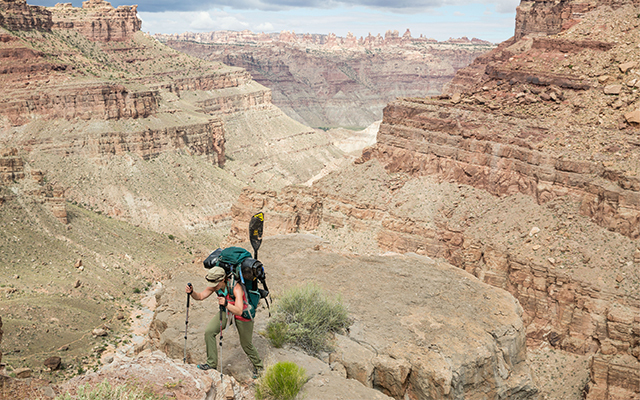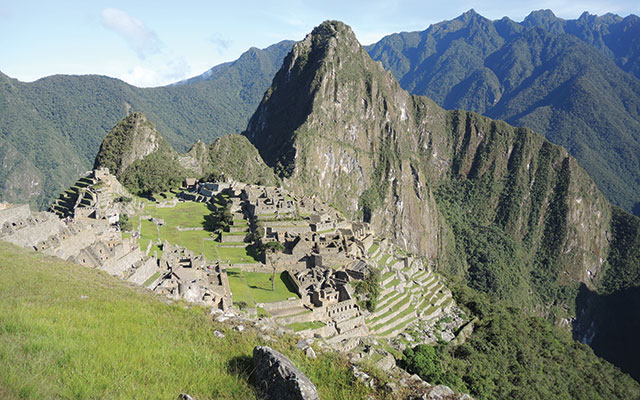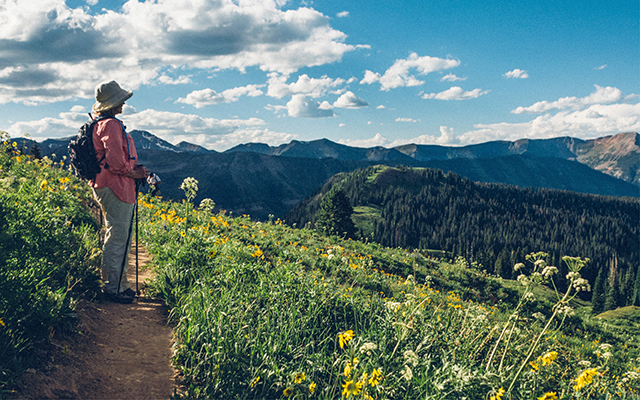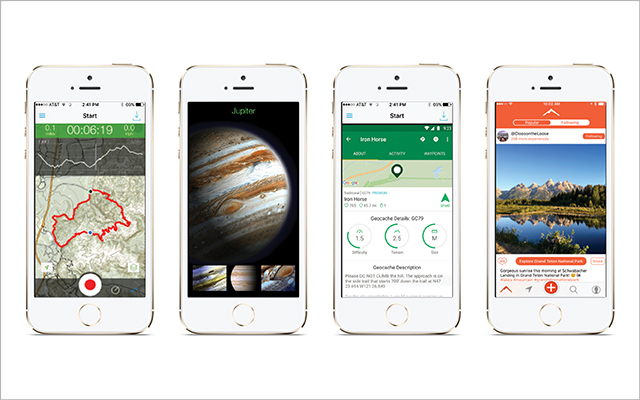Heather Balogh Rochfort grew up amid the natural wonders of Colorado, so you might think that backpacking would have come naturally to her.
Known for its diverse terrain — including mesas, canyons, deserts, and rugged mountains — and ample sunshine, the Centennial State is a preferred playground for outdoor enthusiasts.
From a young age, though, Rochfort spent much of her time indoors training to be a ballerina.
It wasn’t until her college years at the University of Colorado–Boulder that she decided to join some of her friends — who were learning to rock climb and backpack — in exploring the state’s plethora of adventuring opportunities.
Lacking experience didn’t sway Rochfort from tackling a trail. “Ballet is one of the hardest things I’ve ever done,” she says. “If you can be a ballerina, you can climb a mountain.”
Her first outing was a group trek into Chicago Basin, which lies in a subrange of Colorado’s San Juan Mountains. “These days it’s a classic trip,” Rochfort says, “but at the time nobody was really camping there.”
Despite taking a beating from doing too many miles in one day and carrying a pack heavy with canned food, Rochfort was hooked once she arrived at the Basin. Her biggest lesson from that trip, she says, “was that I had a lot to learn.”
While Rochfort enjoyed letting trial and error be her guide, she knows “some people like to learn about these things from the comforts of their own home rather than standing in a lightning storm or 20-degree weather.”
So when she was approached to write a book about navigating nature’s hinterlands, she wanted it to be chock-full of the same helpful tips, tricks, and how-tos as her popular blog, JustaColoradoGal.com.
Her new book, Backpacking 101, includes expert advice for cragswomen and men of all skill levels — including buying the right equipment, cooking energizing meals on the trail, and dealing with animal encounters.
Here are some of her tips for planning a fun backpacking experience:
Experience Life | What’s your advice for people who have never backpacked before?
Heather Balogh Rochfort | The one piece of information I like to give beginners is to be prepared to be uncomfortable.
What seems to happen a lot is that people are out on the trail doing something new and their gear is all shiny and everything is great, but there are those moments when you’ll get a blister or a storm rolls in and what you’re doing may not feel very fun in that moment.
It’s during those moments — which we are not used to because society is focused on helping us avoid discomfort — that you need to remember the second thing, which is that the feeling of discomfort is going to pass.
EL | If I’m a seasoned backpacker, what’s your best tip for improving or making things more challenging?
HBR | I’d say the one thing that will improve your experience is to dial in your gear. Over time, you’ll start to learn more about what items and features are important to you once you’re out in the field. Just because they’re important to someone at REI, your friend, or even me, it doesn’t mean they will make a difference to your experience.
For example, one thing I’ve learned is that I always want dessert after dinner, so I’m willing to carry extra weight in my pack on the trail so that I can make that happen. I learned that I want sugar at the end of the day at the detriment of my back.
EL | There’s a ton of gear you can buy for backpacking, but what are the most essential pieces of equipment?
HBR | There’s a list of 10 essentials or 10 systems or pieces of gear that you should have with you for safety.
They are navigation devices like a GPS or map and compass; sun protection, such as hats, glasses, and chapstick; insulation, such as extra clothing to keep you warm; light, which might be a headlamp or lantern; a first-aid kit; a lighter or matches for a fire; a repair kit; extra food; extra water; and emergency shelter. Ultra-light hikers tend to leave this last item behind, but it can be something as simple as a lightweight tarp or a foldable solar blanket.
EL | What’s a useful piece of equipment to have once I have all the essentials?
HBR | A water filter. Most likely you’re not going to pack all the water you need for a trip, and you will be relying on streams and lakes. To avoid getting sick, it’s helpful to pack a filter or water-purifying tablets.
EL | What are your favorite ways to find trails?
HBR | Backpacker Magazine because it has been around so long and has so much content. It’s easy to find information on just about any area you want to explore on their site.
I also like to do a Google search for a place and dig deep into the search-result pages — I’m talking about going to at least pages 2 and 3 — to find really great blog posts and trip reports. It’s fun and useful to get data from real people’s personal experiences and recaps.




This Post Has 0 Comments